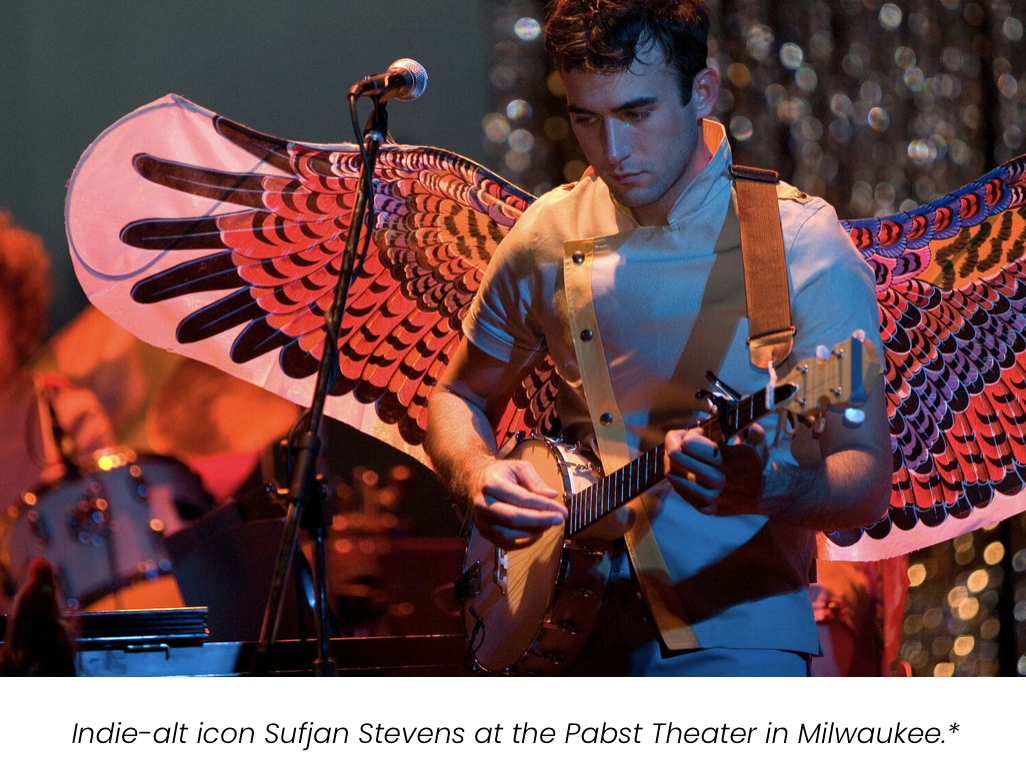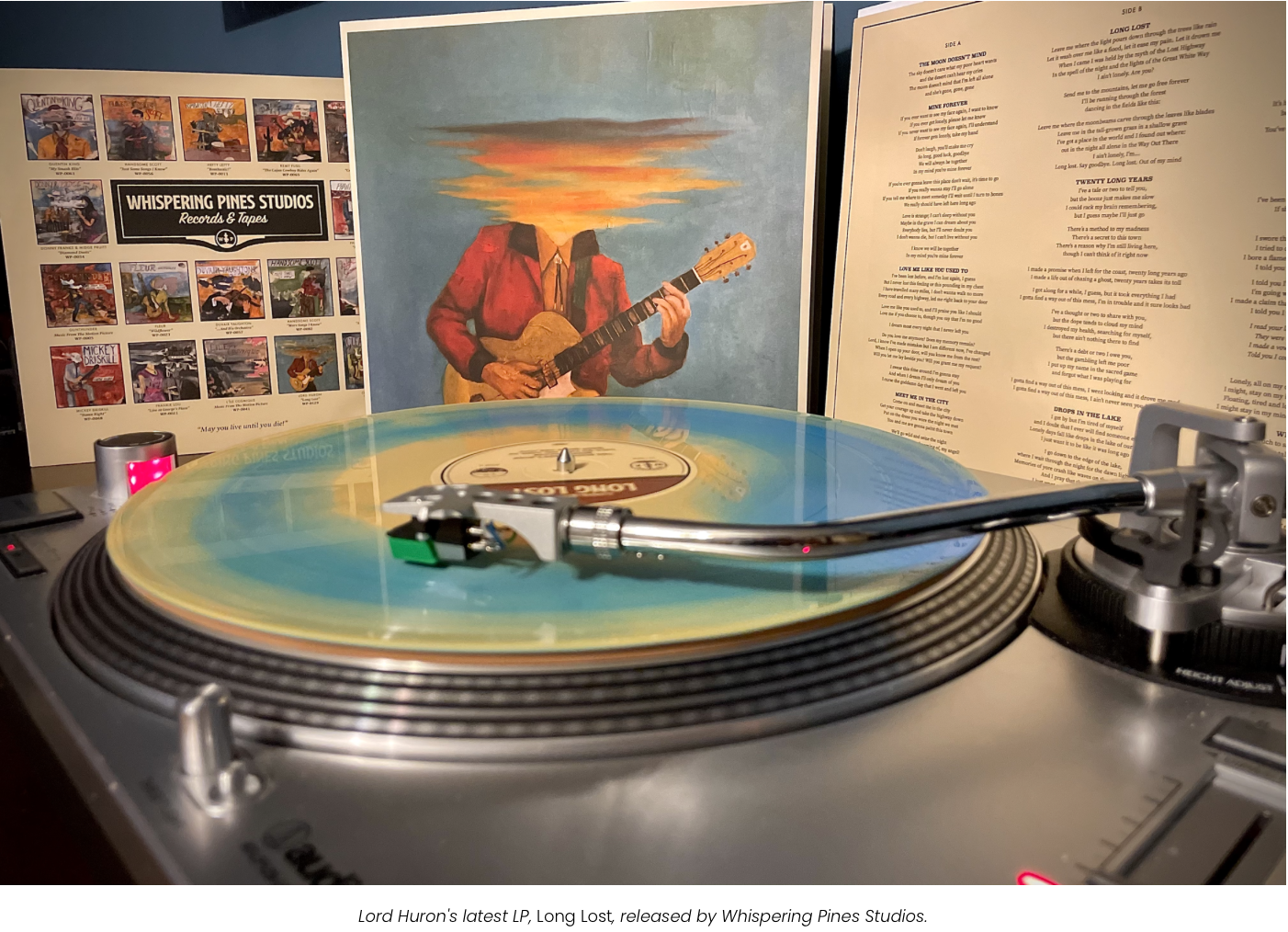New Music
A Vehicle for Inward and Outward Expression
by Nick Johnson
The summer season is often looked forward to as a time to reboot. After an arduous year of school, work, and other responsibilities, the inviting warmth and vibrance of the summer months offer a brief oasis from stress and obligation. For many, the approach of summer means taking a long-awaited annual vacation, a sacred time when one is physically distanced from his or her home and can leave all worries behind—it serves as a brief period of unapologetic, uninterrupted serenity.
Although plenty of people look toward summer as an opportunity for respite, these gorgeous mid-year months are also a fruitful time for taking on new adventures. The change in routine that is built into the fabric of the summer months not only allows an opportunity for relaxation, but also for discovering new things about the world, oneself, or both.
One of the greatest encouragements to explore outside one’s comfort zone is the discovery of new music—not necessarily meaning music that has recently been released, but rather music that is entirely new to the listener. All music, whether a new release or a favorite tune, evokes emotion. An individual will likely listen to different music when he or she is at work, exercising, on a stroll, and so on. Everyone is sure to have at least a song or two that, when heard, vividly brings to mind a specific memory and point in time.
Music reliably elicits emotion, and this is exactly why discovering new music can catalyze the desire to explore. When a listener stumbles upon the work of an unfamiliar musical artist, there is no telling what thoughts, emotions, or desires the music will evoke. The emotions inspired by the new music might be reminiscent of other, well-loved songs, or an entirely new part of the brain or heart might be touched in a way it never has been before. When such a chord is struck, the listener is presented with the opportunity to embark on two different types of exploration.
The first type of exploration that discovering new music can provoke is outward exploration, which can be defined as taking on a new, completely foreign venture. This is the kind of music that puts one in an adventurous mood with a spirit to feverishly discover all of life’s wondrous destinations and marvels.
A recently released album that possesses the potential to ignite the yearning for outward exploration is Changing Colours, the fourth full-length studio album from the Australian psychedelic beach rock band, Babe Rainbow. Comprised of four shaggy blond-haired blokes, Babe Rainbow has taken the genre of beach rock—known for being especially softly-toned and easygoing—and made it its own by infusing its music with elements of modern psychedelia to create some of the most mellow music known to man.
When listening to Changing Colours from start to finish, all one has to do is close his or her eyes to feel like he or she has been transported to the warm beaches of Byron Bay, Australia, the coastal town where the sun-bleached Aussies formed their band. The smells of the crisp sea air and the cool New South Wales breeze arrive alongside the sounds of the rolling tide and the bristling stalks of sugarcane—the listener is in paradise. This vivid imagery of the lush natural world is enough to make anyone want to drop everything and travel the world’s beaches to absorb such breathtaking oases firsthand.
Not only does the signature psychedelic-beach rock sound of the Australian band evoke the desire to venture out and take in the full beauty of the natural world, but the lyrical themes of the LP also point to exploration—many of the songs read like whimsical short stories. “California” details the narrator’s search for a long-lost friend in the Golden State, “Rainbow Rock” tells the tale of a woman who envisions herself exploring mystical woods the narrator likens to the Garden of Eden, and “New Zealand Spinach” chronicles the wanderings of four intriguing characters as they meander about the island nation. One would be hard-pressed to listen to this blissful project and not feel inspired to seek out new and exciting enterprises.
The second type of exploration new music can inspire is inward exploration, which can be defined as the desire to look deeper within one’s mind in order to learn something new about oneself. This is the type of music that sparks long periods of self-reflection, meditation, soul-searching, and contemplation.
A recently-released album that could spark such inward exploration is Long Lost, the fourth LP from Michigan-based indie folk-rock band, Lord Huron. The album’s title itself is indicative of exploration, as it implies the narrator of the songs to be lost and looking for a way back home. However, when one listens, it is clear that the narrator is not lost directionally, but emotionally.
Inward exploration is abundantly present in “Love Me Like You Used To,” as the song’s first verse croons, I’ve been lost before and I’m lost again, I guess // But I never lost this feeling or this pounding in my chest. The narrator is looking for emotional direction, and his feelings for his former love interest serve as his only compass—proven by the following phrase, I have traveled many miles, I don’t want to walk no more // Every road and every highway led me right back to your door. He has embarked on a journey of inward exploration but has tragically found himself arriving at trodden ground.
“Twenty Long Years” sees the narrator dive into his memories to reminisce about fonder times, and in “Mine Forever” he concocts an imaginary scenario and repeats the tragic chorus, In my mind, you’re mine forever. The group’s folksy style of storytelling combines with the album’s narrative of looking within oneself to cope with heartbreak; it stretches out a melancholy hand to listeners, inviting them to join the narrator in his somber contemplation.
In conversation with Ryan Meehan, the lead singer, songwriter, and guitarist of Rhode Island-based alternative rock band, Silver Dahli, the conversation about how music inspires exploration is given further insight. Throughout Meehan’s twenty years with the band, he has found that performing has provided him the chance to “find who I am, expressing something that I normally would not [...]. When I go on stage, I can explore a different persona, a different part of me.”
He has experienced firsthand how music can act as a vehicle for exploration, citing how, “I kind of let the music just fill me, and take me where it wants to go.” Meehan further elaborates on why no two of his band’s performances are the same—each show provides a unique opportunity to explore connections with the audience, his bandmates, and the music. “Saying I wrote this song about ‘this’ is irrelevant,” he contends, “because anybody that listens to a song is going to put [his or her] own take on it, relating to it however [he or she] would like. You never know what people are going to latch onto.”
When anyone partakes in a fresh musical experience, they are presented with the opportunity to explore. Many forms of art can have such a result on its audience, but music unfailingly accomplishes this—especially during that first listen. May this vibrant summer season be a time that invigorates listeners across the world to dig deep through their streaming services, old CDs, or parents’ dusty record collections so that they may zealously explore both outwardly and inwardly and reach levels of connection they never have before.





